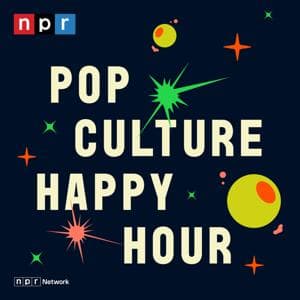The Copenhagen Test co-star Saul Rubinek talks about three recent major projects, including Peacock’s acclaimed thriller.
Seasoned character actor Saul Rubinek’s incredibly diverse resume boasts collaborations with some of cinema’s greatest filmmakers. He worked with Oliver Stone on Wall Street and Nixon. He co-starred in Clint Eastwood’s Oscar-winning masterpiece Unforgiven. He was also featured in Tony Scott’s True Romance, based on a screenplay by Quentin Tarantino. His career also boasts memorable turns on such long-standing television series as Frasier, Curb Your Enthusiasm, Lost, Hunters, and most recently Peacock’s The Copenhagen Test.
Created by Thomas Brandon, The Copenhagen Test stars Simu Liu (Shang-Chi and the Legend of the Ten Rings) and Melissa Barrera (Scream). Liu plays Alexander Hale, an intelligence agent whose brain is hacked which allows access to everything he sees and hears. Rubinek’s Victor Simonek, a former intelligence analyst who now runs a restaurant, mentors Alexander, but is there more to their partnership?
Rubinek joined the series thanks to a lifetime of adoration for the spy thriller novels of Ian Fleming or, later, John le Carré. Rubinek considers showrunner Brandon’s work a descendant of the storytelling-focused spy novels he loved.
“This piece, when I read it, I realized, ‘Oh my god, this is a grandchild of that world!’ This writer knows it and is not talking down to the audience. It is complex, interesting, and propulsive,” Rubinek explained. “The real metaphor here that Thomas Brandon is using is creating a situation that poetically, entertainingly, and very excitingly creates a situation where the ends and the means are put right up against each other. Especially on an immigrant kid who needs maybe more than anybody else to prove his loyalty to the country that has stopped giving his parents safety.”
Here, in a podcast interview with The Contending, Saul Rubinek talks about much from his extensive career within theater, film, and television. He praises The Copenhagen Test show runners Thomas Brandon and Jennifer Yale for their ability to create an atmosphere of safety. He marvels at their ability to create a set that sponsored artistic freedom and risk-taking. He also calls series star Liu a “generous leader” who deeply understands the mutual support system between star and supporting cast required to create something great.
Rubinek also shares several stories from his personal life, many of which he describes in his new book All in the Telling: a somewhat true story, which is now available on Amazon. He dives into his incredible past, including his introduction into theater in his Canadian childhood. He also shares perspectives on his recent critically acclaimed performance as “Saul Rubinek” (or a variation of himself) in the recent off-Broadway play Playing Shylock. Rubinek will soon re-stage this performance in Montreal.
Rubinek is a gifted character actor whose performances grace many of film and television’s best creations. But, most importantly, Rubinek is a gifted storyteller with a great deal to share.
Click here to listen to the full podcast with The Copenhagen Test co-star Saul Rubinek!
The Copenhagen Test streams exclusively on Peacock.
Royalty Free Music from Tunetank.com
Track: Here We Go! by cinematic alex
https://tunetank.com/track/802-here-we-go/ The post ‘The Copenhagen Test:’ Saul Rubinek On What Led Him To Peacock’s Acclaimed Thriller appeared first on The Contending.




































